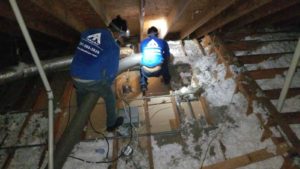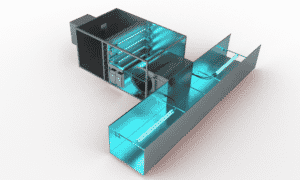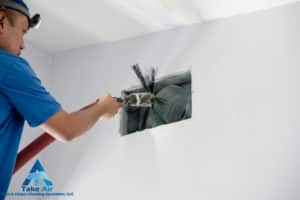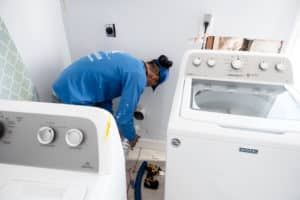Owning a home in the vibrant city of Houston, Texas, comes with its unique set of challenges and considerations. One important aspect that often goes unnoticed is attic insulation. While the subtropical climate of Houston brings warm temperatures for most of the year, ensuring your attic is properly insulated can have a significant impact on your comfort, energy bills, and the overall efficiency of your home.
Understanding the Importance:
Climate Considerations: Houston’s climate is characterized by hot and humid summers, with temperatures soaring well above 90°F. Without proper insulation, your attic can become a breeding ground for heat, making it difficult to maintain a comfortable temperature inside your home.
Energy Efficiency: Proper attic insulation acts as a barrier, preventing the transfer of heat between the inside and outside of your home. This means your air conditioning system won’t have to work as hard to maintain a cool indoor environment, leading to lower energy bills and reduced strain on your HVAC system.
Moisture Control: Houston’s humidity levels can be quite high, and a well-insulated attic helps control moisture, preventing the growth of mold and mildew. Moisture buildup can compromise the structural integrity of your home and pose health risks to your family.
Year-Round Benefits: While attic insulation is commonly associated with keeping your home warm in the winter, it’s equally important in the Houston climate for keeping your home cool during the scorching summer months.
Assessing Your Attic:
Existing Insulation: Start by assessing your current attic insulation. If you find outdated or insufficient insulation, it might be time for an upgrade.
Energy Audits: Consider scheduling a professional energy audit to identify any areas of heat transfer or energy inefficiency in your home. This can help you pinpoint specific insulation needs in your attic.
Choosing the Right Insulation:
Material Selection: Selecting the right insulation material is crucial. Common options include fiberglass, cellulose, and spray foam. Each has its advantages, so it’s important to choose based on your specific needs and budget.
R-Value: Pay attention to the R-value of the insulation. In Houston, where cooling is a priority, higher R-values are generally recommended for better thermal resistance.
Professional Installation:
While some homeowners may opt for a DIY approach, attic insulation is a task best left to professionals. Hiring a qualified insulation contractor ensures that the job is done correctly, maximizing the effectiveness of your insulation and providing long-lasting benefits.
In the dynamic city of Houston, taking steps to insulate your attic is a smart investment in the comfort and energy efficiency of your home. With the right insulation, you can enjoy a cooler living space, lower energy bills, and peace of mind knowing that your home is well-prepared to face the challenges of the Texas climate.









